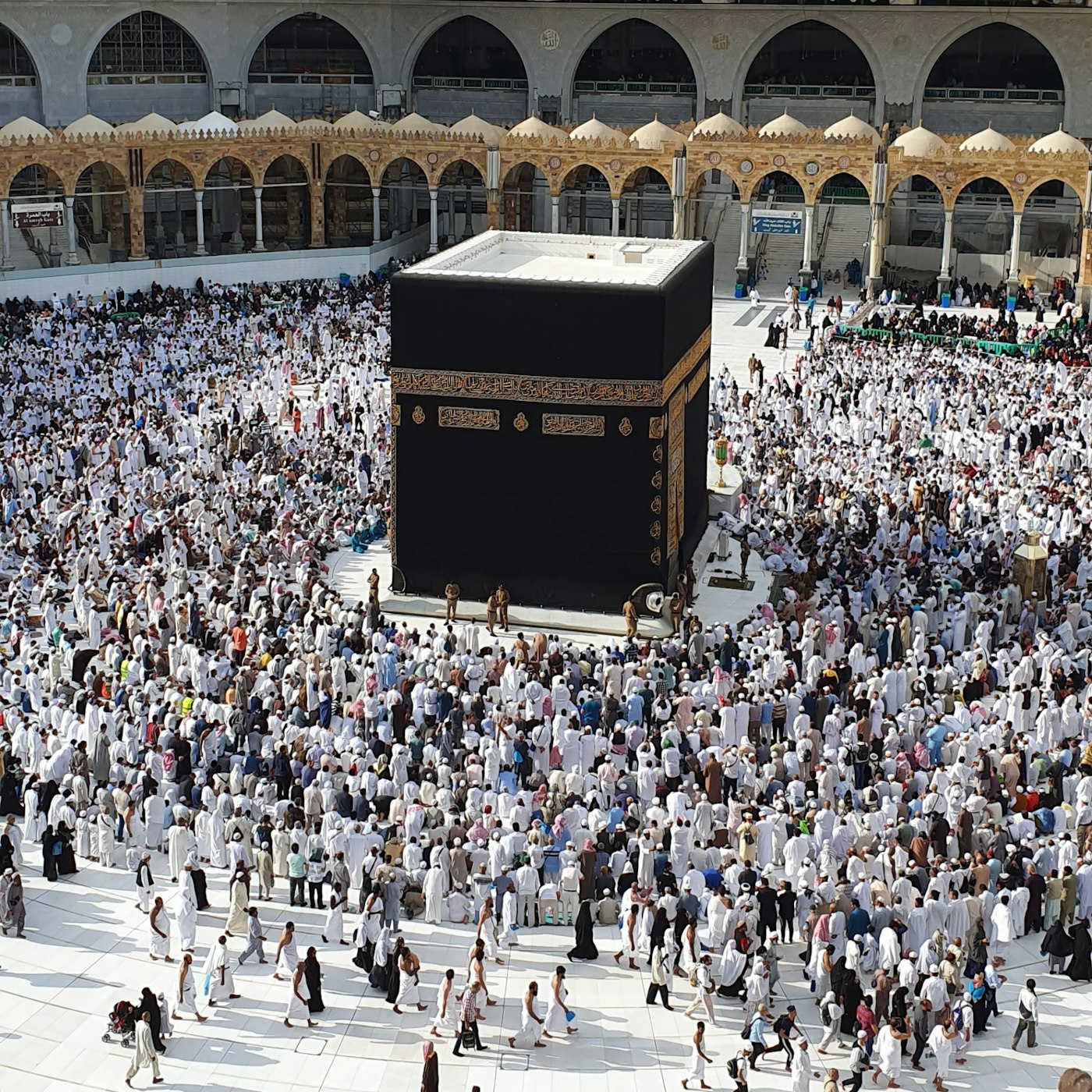
Most of us have spent the past two Ramadans alone or at home with families. While spending time alone in reflection and contemplation is encouraged, Islam is a religion of balance which also centres communal worship. As Muslims, we have a responsibility to perform acts of worship together such as congregational prayers, funeral services and hajj. We also have a responsibility to look after one another: physically, spiritually, mentally and financially.
“The parable of the believers in their affection, mercy, and compassion for each other is that of a body. When any limb aches, the whole body reacts with sleeplessness and fever.” [Bukhari]
It’s from spending time together that we sometimes notice a difference in the situation of our fellow brothers and sisters, or that we nurture bonds which allow those in difficulty to confide in us without feeling shame.
The Prophet ﷺ said, “A believer to another believer is like a building whose different parts support each other.” Then he ﷺ clasped his hands with the fingers interlaced while saying that. [Bukhari]
Allah also says in the Qur’an, “And hold firmly to the rope of Allah all together and do not become divided. And remember the favour of Allah upon you – when you were enemies and He brought your hearts together and you became, by His favour, brothers.” [Qur’an 3:103]
Although the primary aim of fasting is to help us attain God-consciousness, Ramadan opens up several opportunities for communal worship. Alhamdulillah, we’re easing out of the pandemic, and mosques have begun to open their doors again which presents an opportunity to gather again for the sake of Allah. We can pray taraweeh in congregation, break our fast with others, and support causes by contributing our time, money and other resources.
Though it might be tempting to continue observing acts of worship alone in the comfort of your home, there is so much barakah in worshipping together.
Five Benefits of Communal Worship in Islam
- The Prophet ﷺ said, “The reward of the prayer in congregation is twenty seven times greater (than that of a prayer offered by a person alone).” [Bukhari]
- The Prophet ﷺ said, “People should desist from failing to attend the congregations, otherwise Allah will seal their hearts, and they will be among the negligent.”
- “A man’s prayer observed along with another is purer than his prayer observed alone, and his prayer with two men is purer than his prayer with just one, and whenever there are more, it is more pleasing to Allah, the Almighty.” [Abu Dawud]
- “If three men in a village or in the desert, make no arrangement for salah in congregation, Satan must have certainly overcome them. So observe salah in congregation, for the wolf eats up a solitary sheep that stays far from the flock.” [Abu Dawud]
- The Messenger of Allah ﷺ said, “Verily, whoever stands for prayer in Ramadan with the Imam until he is finished, it will be recorded as if he prayed the entire night.” [Tirmidhī]
So, spend some time researching the nearest mosque(s) to you and create a plan for praying taraweeh with them, invite your family, friends and neighbours for iftar when you can or organise a charity drive for a cause you’re passionate about.
May Allah accept our deeds as acts of worship. Ameen.
Sources:
Suad Kamardeen
Suad Kamardeen is a British-Nigerian Muslim writer, editor, engineering graduate and a Creative Writing Masters student at the University of Oxford. She is also a founding editor at WAYF journal. She recently launched Qalb Writers Collective, a platform and community dedicated to helping Black and/or Muslim women finish their novel manuscripts and get ahead in the publishing world. She is committed to documenting histories and cultures, as well as impacting people’s lives positively through storytelling. Her young adult novel, Never Enough, won the SI Leeds Literary Prize 2022, and her adult novel was shortlisted for the Stylist Prize for Feminist Fiction 2021. Her writing has also appeared in Bad Form Review, Sapelo Square and The Unheard Stories anthology. You can find her on Twitter/IG: @suadkamardeen